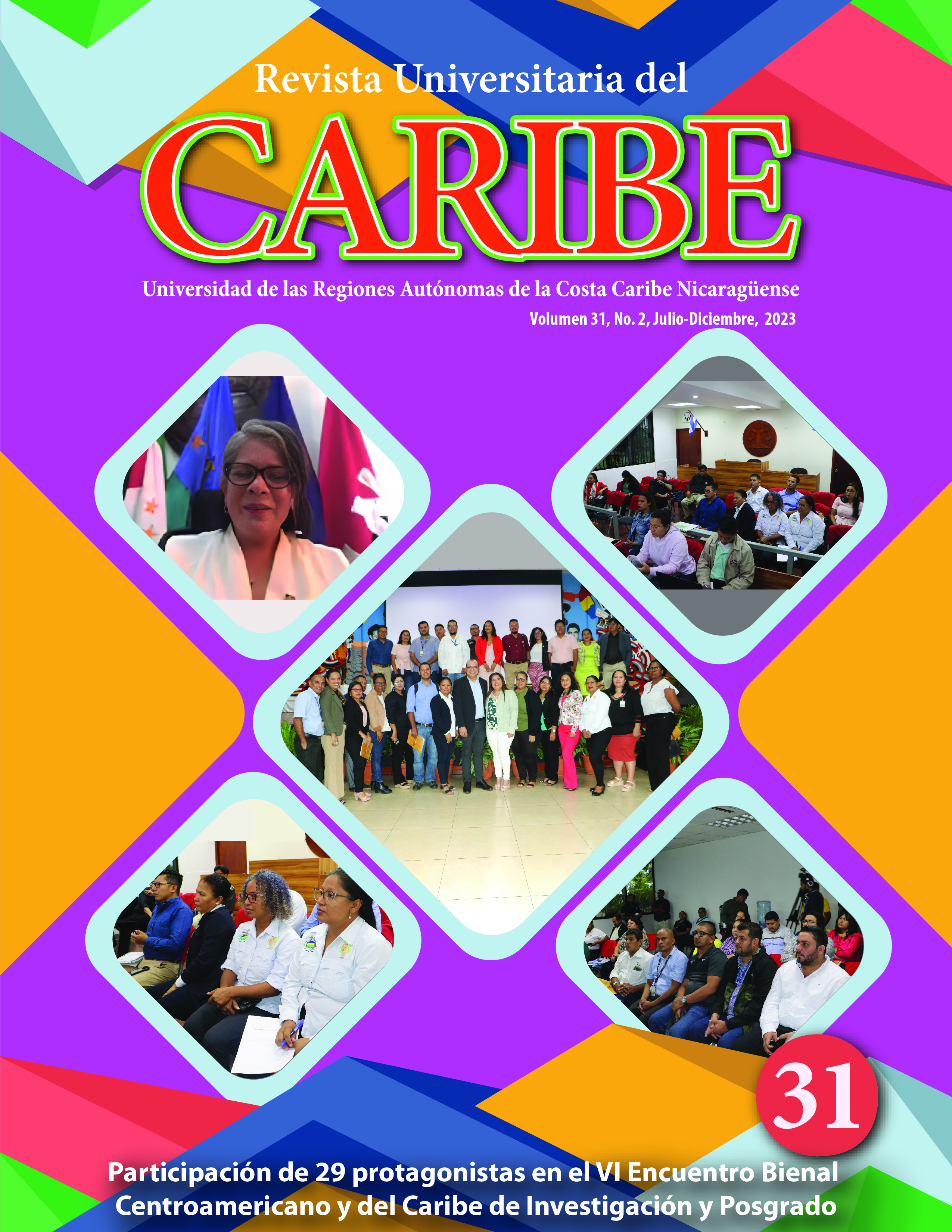Mayangna Tuahka forest linguistics; Wasakín, Rosita, Nicaragua 2018
DOI:
https://doi.org/10.5377/ruc.v31i2.17953Keywords:
Linguistics, floristic diversity, forest species, Mayangna forest worldviewAbstract
The study was conducted to describe the Mayangna Tuahka forest linguistic diversity in Wasakín community, Rosita, Nicaragua 2018, to promote its economic and social-cultural importance. Qualitative methodology with an ethnographic approach was used, through the application of interviews with the seniors, medicine men and lumberjacks of the community.
In this research, 34 species of multiple-benefit trees were identified with their respective names in the Mayangna Tuahka language, assigned by the ancestors of this indigenous community, who have lived attached to their customs and idiosyncrasies, so this tree categorization has been established taking into account the representative characteristics from the worldview and cosmogony, Mayangna, of which, 23 species have been named according to their origin, meaning, use, geographical position, palatability of the fruits and spirituality; Information is lacking for 11 species.
It is considered that, given the diversity of use of forest species due to the multiple benefits, mainly cultural, from the scope of the worldview of indigenous peoples that creates, recreates, revitalizes and manages the value and practice of ancestral knowledge in traditional medicine, timber goods and in spirituality, in addition to the use of their names in their own language. It is necessary to promote spaces for reflection on this topic, in order to guarantee the continuity of the paths of indigenous knowledge.
Downloads
171
Downloads
Published
How to Cite
Issue
Section
License
Copyright (c) 2024 Universidad de las Regiones Autónomas de la Costa Caribe Nicaragüense

This work is licensed under a Creative Commons Attribution-NonCommercial-NoDerivatives 4.0 International License.
Propietario de los derechos de autor de los artículos: Los autores guardan los derechos de autor.

Esta revista está bajo una licencia de Creative Commons Reconocimiento-NoComercial-SinObraDerivada 4.0 Internacional. Esta licencia permite que otros puedan descargar las obras y compartirlas con otras personas, siempre que se reconozca su autoría, pero no se pueden cambiar de ninguna manera ni se pueden utilizar comercialmente.

